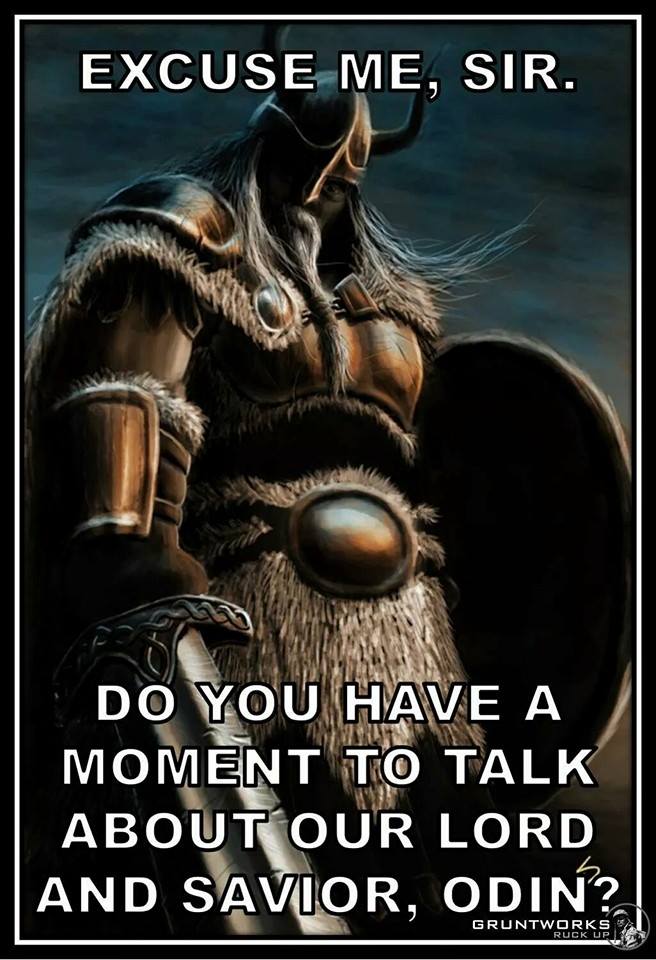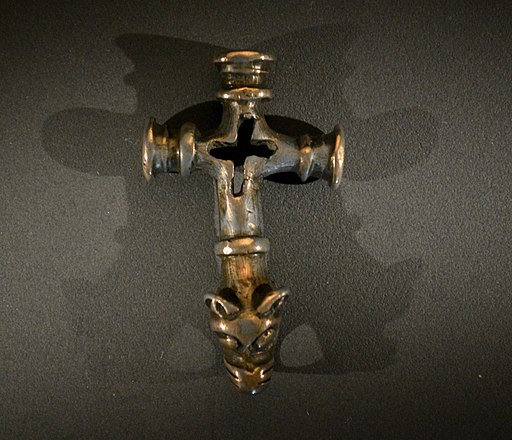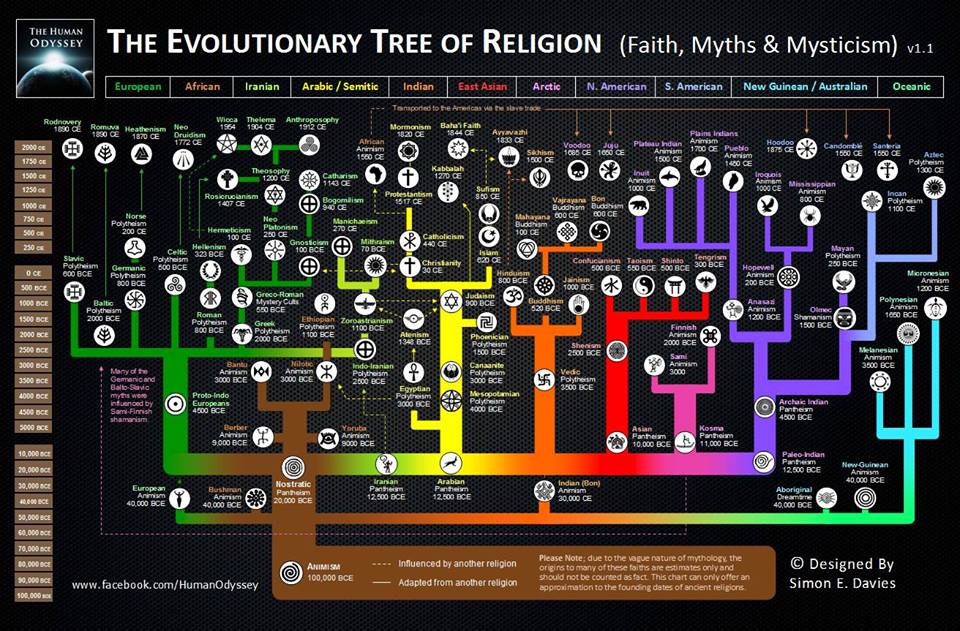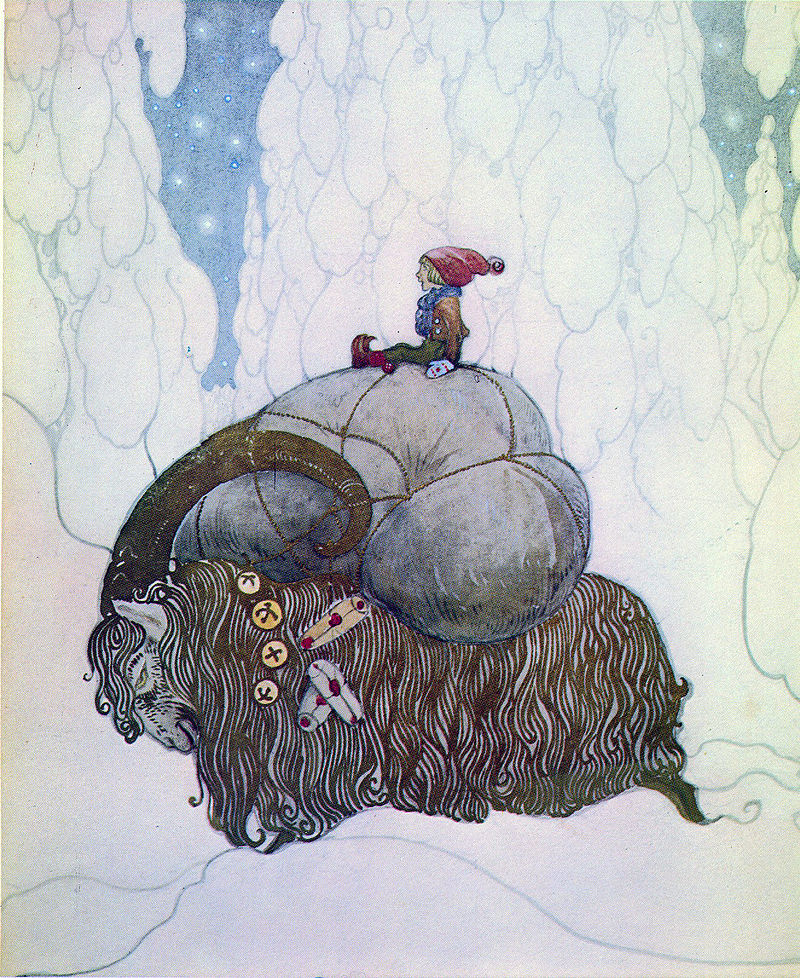
Are the Norse Gods the Only Gods?
 On one of the myriad groups I occasionally hang out on, I noticed someone was asking if the Norse gods were the only gods. In this world of monotheistic gods, it’s not as strange of a question as pagans would like to think. Are the Northern deities the only gods out there? And if they aren’t, what makes them better than any other gods?
On one of the myriad groups I occasionally hang out on, I noticed someone was asking if the Norse gods were the only gods. In this world of monotheistic gods, it’s not as strange of a question as pagans would like to think. Are the Northern deities the only gods out there? And if they aren’t, what makes them better than any other gods?
Polytheistic Beliefs
First, let’s look at polytheism, as a whole. There are basically two types of polytheistic beliefs: hard and soft. If you’re a hard polytheistic believer, you believe our gods are individual and physical beings. That Thor really rides a chariot pulled by two goats and Sunna drives the chariot of the sun, being chased by a wolf. You believe that Odin is really in human form and there are little demigods wandering around this Earth.
Soft polytheistic believers tend to believe the gods as archetypes. They may believe the different pantheons are simply manifestations of a core pantheon. Or they may believe that the gods are aspects to a single god.
What I Believe as a Polytheist
Before we get much further in my arguments, let me state my own position, so that there isn’t any confusion. I tend toward a soft polytheistic belief of archetypes, BUT given that I have dealt with the gods directly, I believe that the gods can take forms we humans can see and interact with. (They are, after all, gods.) I also believe that at least in this Universe, our gods go by many names and manifestations, but they are the same gods wherever you go.
Now, that I’ve gotten that out of the way, let’s talk about whether our gods are the only gods out there.
The Only Gods?
It’s common today to think that our way is the only way. That our gods are the only gods. In some ways, I’m sometimes tempted to think that route, but that’s wrong. That thought is a holdover from monotheistic beliefs. The history of Norse polytheism suggests that our ancestors didn’t consider the Norse gods to be the only ones. We know that our Northern ancestors borrowed beliefs and gods from other pantheons and affected other pantheons, in kind. For example, the Kievan Rus worshiped the Slavic gods, which bear an uncanny resemblance in many ways to the Norse pantheon. That’s not surprising, given that the Varangians, known as the Rus, came from the Norse lands and settled in Russia and other Slavic lands.
Not the Only Gods
 We know that the Icelandic peoples worshiped Jesus alongside the Norse gods, given the Icelandic Cross/Thor’s Hammer. It’s also suspected that the Vanir are a group of gods that got assimilated into the Northern pantheon sometime in the past, thus making the Aesir and Vanir to be two groups of gods that merged to give us our current pantheon.
We know that the Icelandic peoples worshiped Jesus alongside the Norse gods, given the Icelandic Cross/Thor’s Hammer. It’s also suspected that the Vanir are a group of gods that got assimilated into the Northern pantheon sometime in the past, thus making the Aesir and Vanir to be two groups of gods that merged to give us our current pantheon.
So, given that the Norse weren’t picky about who they worshiped, if it fit their world view, they would have a tough time with the concept that the Norse gods were the only gods out there. I suspect the attitude changed with the appearance of monotheistic religions and their insistence on their god being the “one true god.” When someone tells you that your belief is all wrong and tries to persecute you, you can bet that push back is going to be that Odin is better.
Let’s Dig Deeper
But, let’s consider the evolution of religion to begin with. Religions, whether polytheistic or monotheistic stem from the ancient roots of animism and then shamanism.  If you go back through the evolutionary time period for religion, you’ll see that we’re looking at a type of pantheism which eventually split out into a Proto-Indo-European main religion. This religion eventually split off and morphed into the polytheistic religions of Europe. The similarity between our god and other gods caused the Romans to refer to Germanic gods by Roman god names. I don’t think this was an egotistical classification by the Romans, either. The Romans certainly weren’t fond of Celtic and Germanic tribes. For Romans to ascribe their own gods to ours would’ve suggested that the belief was similar.
If you go back through the evolutionary time period for religion, you’ll see that we’re looking at a type of pantheism which eventually split out into a Proto-Indo-European main religion. This religion eventually split off and morphed into the polytheistic religions of Europe. The similarity between our god and other gods caused the Romans to refer to Germanic gods by Roman god names. I don’t think this was an egotistical classification by the Romans, either. The Romans certainly weren’t fond of Celtic and Germanic tribes. For Romans to ascribe their own gods to ours would’ve suggested that the belief was similar.
So, if our religion is derived from an older religion, and our religion is closely related to other polytheistic religions, what does that mean for being the only true religion? Since religion is derived from the same roots, our gods are similar to the other gods within the European pantheons. Granted, we have cultural differences. If our gods are the same gods as those in the Celtic pantheon, the Roman pantheon, and the Slavic pantheon, then how can we hold up our gods and say they are the only gods?
What if They’re Not the Same?
Even if you don’t believe that the Norse gods aren’t other gods in other belief systems, the fact remains  that most northern polytheists would readily accept a god or two from another pantheon. And if tribes met peacefully, if one god was similar enough to another, I could easily see our ancestors adding those stories to the legends. A good story, after all, is a good story.
that most northern polytheists would readily accept a god or two from another pantheon. And if tribes met peacefully, if one god was similar enough to another, I could easily see our ancestors adding those stories to the legends. A good story, after all, is a good story.
The problem I have with separating out the gods from other pantheons is the roles they take on in nature. Thor is the thunder god. Does that mean that we must worship the Thunderbird because we’re in America and that is the creature of thunder here? Does that mean that in Ireland there is only Taranis and not Thor? Of course not. Thunder and lightning are the same everywhere on Earth. In fact, it behaves according to the laws of physics everywhere in this Universe, so one could potentially argue that Thor is a Universal god. Gerd is an Earth fertility goddess. So is Demeter, Gaia, and a host of other goddesses. Again, the Earth is the Earth, despite its variations. What causes the crops to grow one area is the same as another. Again, physics.
If you’re a hard polytheist–which is getting pretty difficult to do in the face of science–you may decide that I’m full of shit and there really is only one Thor, one Tyr, and one Odin. But then, again, I think most of you who read this blog are tending toward soft polytheism anyway, with occasional forays into believing that the gods can take any form they choose. If it happens that Odin takes on Zeus’s form, so what? If Thor is Perun to the Slavs, who cares? In the end, they are our gods, and that is really all that matters.




